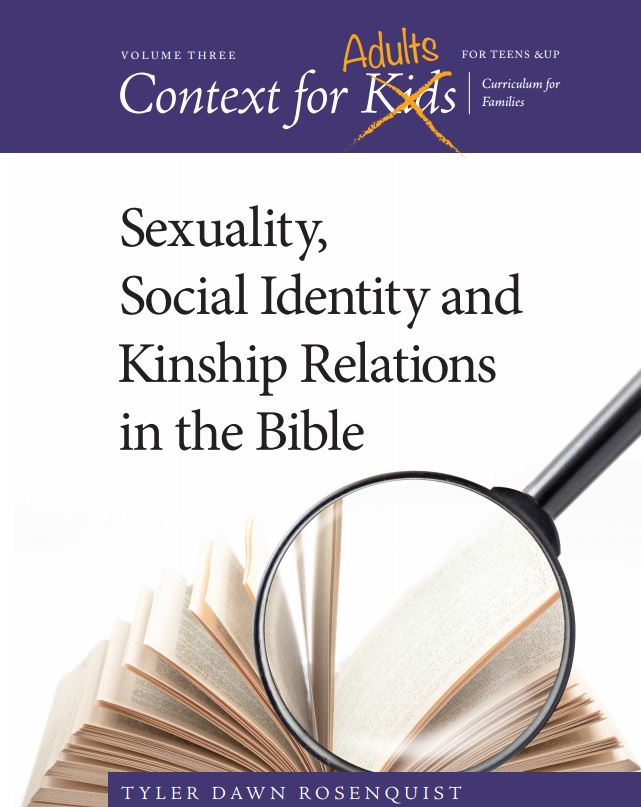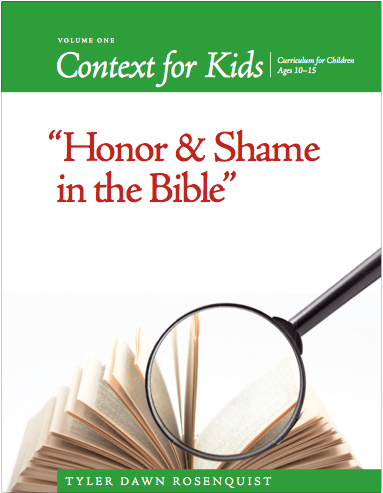
The push towards the polygamous lifestyle pops up every now and then among people who do not understand the Ancient Near Eastern context of scriptures. People see the polygamy of Mormonism and mistakenly equate that with what was going on in the Bible but nothing could be further from the truth. Mormonism (and very very fringe Messianic groups) teaches (in some sects, and used to teach as a general rule) that the taking of multiple wives is an expression of divine order and holiness. The Mormon religion teaches that God is up there in Heaven having celestial sex with a great number of wives, producing the souls of the people on earth, and so the taking many wives is simply an expression of the divine nature of God (of course they gave up this “godly expression” so that Utah would become a State). In fringe Messianic and Christian groups, polygamy is often taught in conjunction with the belief that women have no relationship with God outside of their marriage or their fathers – clearly an unsupportable position when one understands the Covenant and the legal context of the scriptures. Whereas modern polygamy has at its core the control and subjugation of a number of women for the sake of the male under the auspices of religion, the possession of multiple women in the Ancient Near East served other functions entirely.
.
They will state – “but Abraham had two wives, and Jacob had four!” And in this, they display a lack of understanding not only about what was going on in those specific situations, but also the desperate need in the Ancient Near East for an heir to inherit a man’s property.
.
The first instance of polygamy in scriptures was attributed to one of the descendants of Cain (Gen 4) – not really a glowing endorsement. Lamech had two wives – and the guy was a murderer who killed a young man for simply wounding him. I submit that we should in no way consider him a godly role model.
.
Our one true instance of polygamy with the forefathers was Jacob, but that was a specific situation with extenuating circumstances. Jacob was tricked by Laban into marrying a woman he did not love but because he was so desperately in love with Rachel, he ended up taking ONLY two wives (as I will show, Bilhah and Zilpah were not really wives by our modern definition), and so this was not planned a polygamous relationship (it most likely had to do with invalidating Jacob’s inheritance rights to Laban’s property, but that is another thing altogether – check out www.wisdomintorah.com and their teachings on adoption in the ancient near east). This and most all other cases of polygamy in the Bible involve concubinage, which served a specific function.
.
The way we look at marriage today, as being about “love” (a word which we have also redefined to be about feelings instead of about covenant loyalty) and romance, is relatively new. In biblical times, marriage was a covenant arrangement – a contract for the providing of heirs for the man and stability, position and children for the woman. In the ancient near east, a wife was required to give her husband children (and he was not to deny her the sexual relations that provided these children). If she was unable, she was required to provide her husband with a concubine, a sort of pseudo wife who was there not for sex but specifically for providing children. A concubine did not replace the actual wife, she was there for a specific purpose – providing heirs. That is why Sarai provided Hagar, and why, when Hagar exalted herself over Sarai, Sarai presented Abraham with a Covenant lawsuit and said, “May YHVH judge between you and I.” Abraham did what was right and placed Hagar back under Sarai where she legally belonged. It is also why Rachel provided Bilhah when she could not provide children and Leah provided Zilpah when she stopped bearing children. The children of the concubine actually legally belonged to the wife, not to the concubine. Peniniah was almost certainly a concubine, because Hannah could not provide Elkannah with children (I Sam 1). Concubines were not intended for sex, but to ensure inheritance in the ancient near east – and most especially were a guarantee that there would be someone around to care for them in their old age and bury them in a dignified manner.
.
IVP Bible Background Commentary: Old Testament John H Walton, et al. —
.
pg 49 Commentary on Gen 16:2 Contractual arrangements for barrenness: “Concubines did not have the full status of wives but were girls who came to the marriage with no dowry and whose role included childbearing. as a result concubinage would not be viewed as polygamy. In Israel, as in most of the ancient world, monogamy was generally practiced. Polygamy was not contrary to the law or contemporary moral standard, but was usually not economically feasible. The main reason for polygamy would be that the first wife was barren. In the Bible most cases of polygamy among commoners occur prior to the period of the monarchy.”
.
Obviously, not having an heir in historical times was very serious business, this wasn’t about sex.
.
Here’s the deal — Paul is clear, if you want to be a leader in the congregation you have to be the husband of one wife (I Tim 3, Titus 1). Period. If someone wants concubines or multiple wives, then they forfeit leadership (unless they want to toss Paul, and then I won’t be listening to them anyway) which then leaves them with no right to determine halakah (instructions on the way we live out our lives within the believing community) for the Body anyway. So at least if they do go and get multiple wives, they have to accept a loss of influence and leadership as a result, and do not have the standing to bother people about it.
.
Yes, there were Kings with multiple wives — this was generally done for the sake of alliances or just because they could. Frankly, we can see how badly this went for both David and Solomon. Conclusion: We cannot look at a historical practice outside of the context of history. We must look at the why. Does that “why” still exist? Does that “why” exist within a particular person’s situation? Do they need to form alliances? Do they need an heir? Are they trying to preserve a tribal allotment? If not, then there is no reason for concubinage or polygamy.
.
In all things, we must remember that simply because one of the forefathers did something does not make it acceptable. Every man and woman in scripture, apart from Yeshua (Jesus) did rotten things in their lives and some of them are written down. The men with multiple wives in scripture all paid the price one way or another – be it strife between the wives, or warring between the children of those wives, or in the obtaining of more wives, or because of the influence of so many wives drawing their attention away from God, as in the example of Solomon. In all things, when taking our cues from scripture on how to behave, we must take into account the actual context and not fill in the blanks with our very twisted 21st century Hollywood inspired ideas of what was going on.
Spanish version here
 The push towards the polygamous lifestyle pops up every now and then among people who do not understand the Ancient Near Eastern context of scriptures. People see the polygamy of Mormonism and mistakenly equate that with what was going on in the Bible but nothing could be further from the truth. Mormonism (and very very fringe Messianic groups) teaches (in some sects, and used to teach as a general rule) that the taking of multiple wives is an expression of divine order and holiness. The Mormon religion teaches that God is up there in Heaven having celestial sex with a great number of wives, producing the souls of the people on earth, and so the taking many wives is simply an expression of the divine nature of God (of course they gave up this “godly expression” so that Utah would become a State). In fringe Messianic and Christian groups, polygamy is often taught in conjunction with the belief that women have no relationship with God outside of their marriage or their fathers – clearly an unsupportable position when one understands the Covenant and the legal context of the scriptures. Whereas modern polygamy has at its core the control and subjugation of a number of women for the sake of the male under the auspices of religion, the possession of multiple women in the Ancient Near East served other functions entirely.
The push towards the polygamous lifestyle pops up every now and then among people who do not understand the Ancient Near Eastern context of scriptures. People see the polygamy of Mormonism and mistakenly equate that with what was going on in the Bible but nothing could be further from the truth. Mormonism (and very very fringe Messianic groups) teaches (in some sects, and used to teach as a general rule) that the taking of multiple wives is an expression of divine order and holiness. The Mormon religion teaches that God is up there in Heaven having celestial sex with a great number of wives, producing the souls of the people on earth, and so the taking many wives is simply an expression of the divine nature of God (of course they gave up this “godly expression” so that Utah would become a State). In fringe Messianic and Christian groups, polygamy is often taught in conjunction with the belief that women have no relationship with God outside of their marriage or their fathers – clearly an unsupportable position when one understands the Covenant and the legal context of the scriptures. Whereas modern polygamy has at its core the control and subjugation of a number of women for the sake of the male under the auspices of religion, the possession of multiple women in the Ancient Near East served other functions entirely.




















Thank you!!